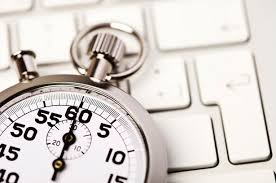Every swimmer is unique and has their own needs and stroke drills that will help them progress and get faster and there are more stroke drills than we can count for each stroke. You can get overwhelmed by what you need to work on, or fit into your workout plan. Before you get picky with individual stroke technique, step back and choose 3 things that you want your team to do well very well.
Here are my big 3. All 3 can have an immediate impact on your racing or training ability right now.
Starts/turns/streamlines: Swim coaches are very good at talking about the importance of these at big meets, yet we watch our athletes do sloppy turns/streamlines and turn a blind eye all season. At the same time, we don't give our teams enough repetitions on the blocks to build good starts. Turns and streamlines have to be taught and worked on. Don't assume they will just get it after doing them everyday in practice. Likewise, starts need to be part of your weekly plan, don't wait until the last 2 weeks, nothing will change in that short amount of time. These are all skills that need repetition at race pace so the body and mind can recognize the way to we want to move. Teach Streamlines! Teach Turns! Get them up on the blocks early and often!

Speed/Tempo: I see a lot of swimmers that can make fast sendoff's very well or swim a long ways on slow intervals, yet struggle when they are asked to swim fast, even when given more rest. I believe there is just as much value in swimming fast, maybe more, than how far you can swim. There are all kinds of charts, graphs, and formula's to use. Find one that works for your team and make sure your swimmers are swimming fast enough in practice. We are in the business to swim fast, not far.

Be Athletic: Swimming Fast, Starts, Turns, and Streamlines are all very athletic movements and similar to the moves we see on ESPN every day like dunking a basketball, hitting home runs, skating on a breakaway. Swimmers need to understand the connection between their legs and core muscles and how it applies to swimming. I hear swimmers categorize themselves as not very athletic or not very coordinated all the time. We have to get this out of their brains as the best swimmers are all very athletic. I haven't met a swimmer that couldn't benefit from being more athletic. This is reflected in what we do in dryland, weights, and even how we practice. Don't be afraid to use some idea's from other sports to get your team more athletic.
No comments:
Post a Comment